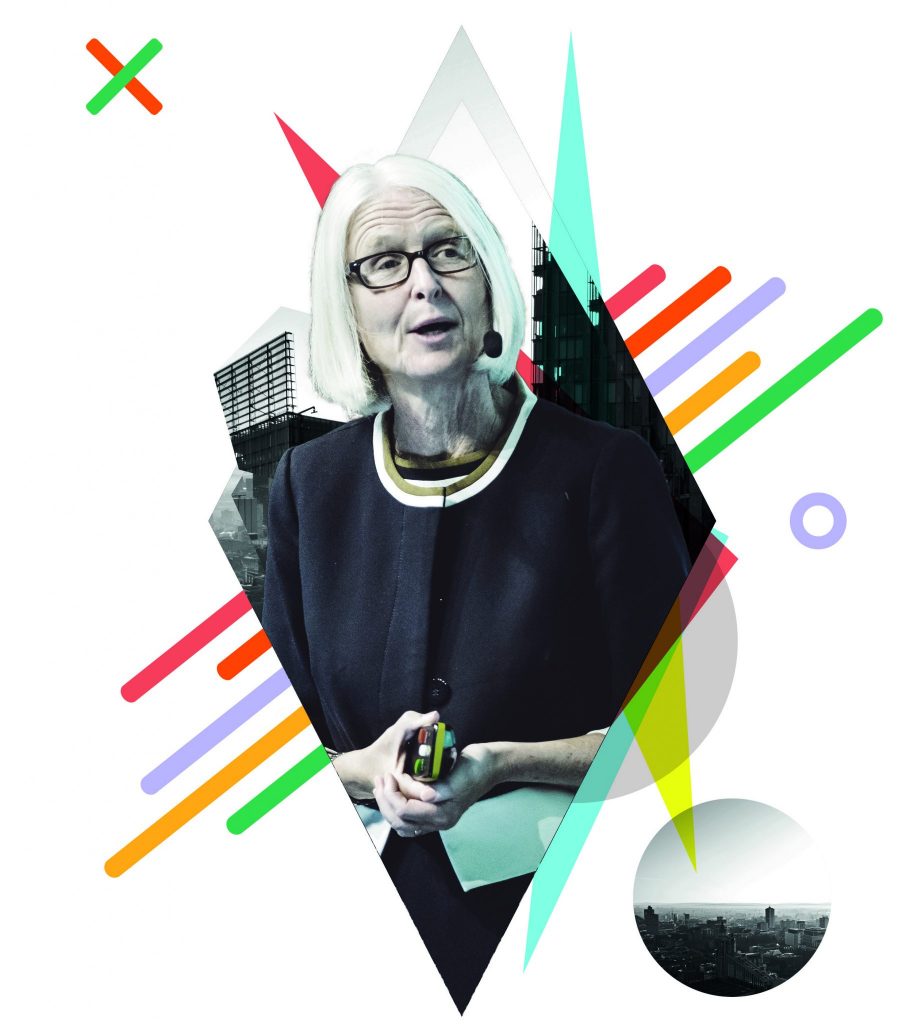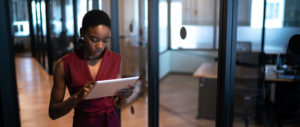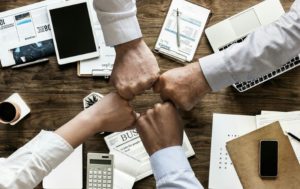Applying original thinking to business


Business Schools must encourage independent thinking and bravery in their students to help prevent future financial crises, says Fiona Devine OBE, Head of Alliance Manchester Business School. Interview by Jack Villanueva and David Woods-Hale
What were the key points of your presentation at AMBA’s 2018 Global Conference for Deans and Directors?

I wanted us all to reflect on the global financial crisis of 2008 because the causes and consequences of that crisis are still being felt today and will be for some time.
I wanted us to think about its impact on the world with a particular focus on leadership and management education. We have to produce the leaders of tomorrow who still take issues of corporate governance very seriously. There are many examples in the business world and in all aspects of life in which we have to think about fraud, accountability, corporate governance and how we address those issues.
In light of that, how do you think Business Schools should be preparing MBAs to be leaders of tomorrow?
Business Schools should be producing well-rounded people. By that, I mean people who understand business in the wider context – the social, economic and political environments in which businesses are operating.
They need to understand this external environment as well as the environments of the organisations in which they’re working.
I think business leaders of the future need to understand how to manage change, how to lead change, and how to deal with risk and uncertainty.
How can we be sure that the skills that are currently being taught are the right tools to safeguard against another financial crisis?
We’ll only know that when there isn’t another one.
I don’t suppose we’ll never have crises in the future. But there should be people who will have the independence of mind to step up and say when there is uncertainty about issues. It doesn’t have to be a big crisis for people to draw attention to something. It’s about having the independence of mind and the courage and bravery to say something different – and not be part of group think. It’s about reflecting on and challenging things that come along if they don’t feel right.
Do you think MBAs are being taught the necessary skills to succeed?
I would hope so, as a Business School Dean. They will be taught what’s needed if the curriculum is up to date. An old curriculum doesn’t serve anybody, so we want an academic community that is abreast of the latest developments in the world of business and how it’s changing; and always bringing theory and practice together.
Our strapline in the Business School in Manchester is ‘original thinking applied’ and it is really about defining theory and practice. Theory is often speculative and not grounded; it’s about connecting this to practice and this is very important and I know that many Business School Deans aspire to achieve it.
How important is the continuation of learning after achieving an MBA?
It’s hugely important. We all talk about it and we know that in a world of change, risk and uncertainty, it’s important to have the space to step out of your organisation, find a platform to talk to people about issues and challenges and get advice.
Executive education and continuing professional development provide that space for you to do that. It’s easy when you’re in an organisation to think you’re the only person facing these problems and you’re the one who has to come up with novel solutions, but often when you join an executive education programme you’ll find yourself confronting similar dilemmas and challenges so it’s good to have those conversations and join that collective discussions about the best ways forward.
In what ways have Business Schools adapted sustainable leadership into their programmes?
Sustainable leadership is to do with resources and how you use them efficiently and effectively for the long term. One of our preoccupations is with environmental sustainability – but there are other forms – and in Manchester we have scholars working in this area.
For example, there are lots of discussions at the moment about the need to move to a low-carbon future, but how do organisations get there? It’s a huge transition, especially if you’re a dominant player in a particular market. How do we get there? This has to be a core part of the curriculum [in Business Schools] whether it’s in the MBA or electives on specialist masters or undergraduate programmes. There’s a high demand for these programmes from students.
What are some of the innovative teaching methods being used to prepare the leaders of tomorrow?
Teaching has changed considerably over the past 10-20 years, most notably because of new technology. The days when you would go into a lecture for an hour of being talked at, as a passive audience member, are long gone.
Technology has allowed us to do amazing things in the classroom and that learning engages students a lot more. It’s not about passive learning, even in large lectures. Material can be presented in innovative ways, using apps and gamification, to help people learn and think in active ways.
Is the need for innovation a major challenge that Business Schools face?
Like any other organisation, Business Schools have to think about change, evolution and relevance. Business Schools have to be useful to the business world, serving local as well as international communities.
The biggest challenge is the politics of today – will the world remain as international as it has been for the past 20 years? Will we embrace people of all nationalities moving around the world and studying at Business Schools? Will people still feel comfortable to do this as the politics of the world changes?
Which is the bigger issue for Business Schools: the volatile economic environment or barriers to student mobility?
International mobility is important, not only for the Business School world but education in general. The academic world has enjoyed a surge of interest from students coming to Business Schools from all around the world and it would be shame if we lost that confidence people have to travel.
We’ve got to think about keeping students up to date with current debates about politics, looking at international relations in terms of trade, how countries collaborate with each other, and all those sorts of issues. These are important for understanding businesses and what happens in the business world.
What innovations have you seen in Business Schools that have the potential to change the way businesses do things?
There are lots of things out there and even as a Dean of a Business School, you hardly know the breadth of innovations happening in your own School.
I’ve been interested in knowledge-transfer partnerships, in which Schools work with organisations. I have a number of colleagues working with legal companies at the moment, around legal tech. They’re exploring changes happening with legal technologies, how that’s disrupting the legal world and also how data is disrupting this sector, in the same way as fintech has disrupted the finance sector.
Academics are bringing their expertise to the areas of solving business problems and helping companies through this. It’s important to be useful.
How can a Business add value to a corporate with which it’s working?
There are many ways we can work with corporates. Business Schools act as a platform to bring people together to discuss important topics.
Manchester Alliance Business School recently held a talk on the industrial strategy in the UK, bringing people together to talk about this. What was gratifying about this event was that people were sharing business cards with each other. We can be a place where big ideas are discussed and we can bring solutions to problems as well.
Fiona Devine OBE is Head of Alliance Manchester Business School and Professor of Sociology at the University of Manchester.
Read more Business Impact articles related to business school strategy

How can business schools identify impact and quantify continuous improvement?
President of the Positive Impact Rating Katrin Muff outlines the value of a system that works with students to assess a business school’s impact orientation and offers insights into areas of strength and potential improvement

Overcoming adversity to serve the business community
Ukraine’s MIM Business School is overcoming the realities of war to continue serving its business community and training its leaders to build a brighter future. President Iryna Tykhomyrova tells Tim Banerjee Dhoul about the reinforced sense of responsibility that is felt by both the school and its students

BGA members in Egypt and Germany lead way in AMBA & BGA awards
The finalists for the AMBA & BGA Excellence Awards have been announced, with Egypt’s ESLSCA University and Germany’s Berlin School of Business and Innovation receiving multiple nominations
Want your business school to feature in
Business Impact?
For questions about editorial opportunities, please contact:
Tim Banerjee Dhoul
Content Editor
Business Impact















